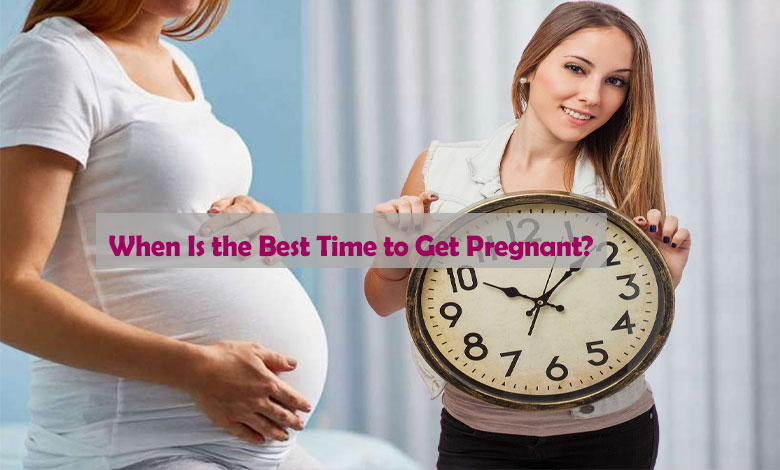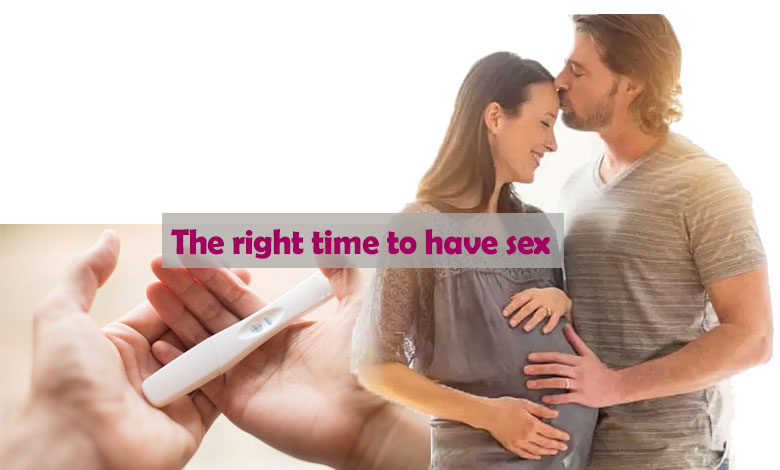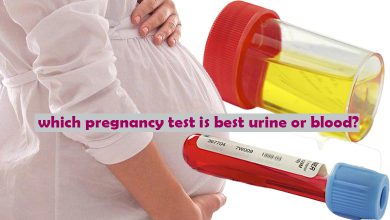5 ways to determine the best time to get pregnant

The best time to get pregnant depends on many factors. The timing of pregnancy can be considered based on physical and mental factors and the time of having a child before. Follow us in this article to get to know the best time of pregnancy.
Related posts: The benefits and harms of consuming carrots and carrot juice during pregnancy
When is the best time to get pregnant?
Mangalani: “Most pregnancies result from intercourse less than 2 days before ovulation.” But you can get pregnant sooner or later.” She says: “Sperm can live up to 5 days in the fertile mucus of the cervix and in the egg up to 24 hours after ovulation.”
Edward Marott, a reproductive endocrinologist at the Fertility Centers of Illinois, says, “In general, the most likely time to get pregnant is 12 to 16 days before your period starts.”
Mangalani: “The important thing is to identify the time of ovulation”. Every woman’s menstrual cycle is different. Many women think they ovulate on day 14 of their cycle, but most of the time, that’s not the case.
Determine the best time to get pregnant and have a baby
To find out when you ovulate and the best time to get pregnant, try one of these methods. You can also seek advice from a gynecologist.
-
Record body temperature to determine the moment of conception
Indicates body temperature when you get up in the morning. Your body temperature rises slightly during ovulation and stays high until your next cycle.
To check and record it, you need a body thermometer that measures small changes. You can find one in most pharmacies and supermarkets.
Take your body temperature every morning before getting out of bed to determine if you are pregnant. Remember the first day the temperature rises.
-
Using an Ovulation Prediction Kit (OPK) to determine the best time to get pregnant
OPKs are home test kits that detect an increase in luteinizing hormone (LH); A hormone that women’s body releases 24-48 hours before ovulation.
In the middle of your cycle, test your urine every day for 5-10 days. When LH rises, it’s time to try to conceive and the best time to conceive.
There are two types of OPKs:
- Ovulation Test Strips: These are paper strips that are dipped in a glass of urine.
- A few minutes later, a line will appear. Depending on how dark the stripe is, you’ll know you’re about to ovulate.
- Digital Ovulation Tests: These are usually more expensive than test strips.
In this method, you place the test stick under your urine stream. The digital monitor shows the probability of ovulation.
OPKs are available in many pharmacies and stores. Most have clear instructions and telephone numbers for free consultations.
OPKs are useful for times when sex is less frequent or when you want to know the exact time, but they aren’t always accurate, says Marot.
For a better review of the best pregnancy and pregnancy timing, you can get an online quote or consultation from the best gynecologists and obstetricians in Tehran:
Using cycle charting software to determine the length of pregnancy
Phone apps can be useful for tracking your menstrual cycle and the timing of your pregnancy. Record details such as the first day of the cycle, OPK results, and basal body temperature. Then you will get alerts about the increased chance of fertility.
This form is best suited for a standard 28-day cycle where ovulation occurs on day 14, which is not the case for many women.
Fertility monitor for pregnancy
Fertility monitors use urine test strips and a digital display to measure LH and estrogen levels. These devices find the day of ovulation and a few days before and store information about your cycle.
These devices are high-tech but expensive, and like tracking apps, often fit the standard 28-day cycle.
Cervical mucus method for having children
The hormones that control the menstrual cycle also affect cervical mucus. A few days after menstruation is “dry days”, with no mucus. As the egg matures, mucus builds up in the vagina and enters through its opening. The mucus can be white, yellow, dark, or sticky.
“wet days” just before ovulation, when mucus is clear and slippery, like egg white. At this time, the probability of pregnancy is higher.
The right time to have sex
Mangalani: “It’s important to schedule intercourse as close to ovulation as possible.” The best way is to have sex frequently. Try doing this every day for 5 days before ovulation. Continue one day after ovulation.

Another option is: Try the “Sperm and Egg Encounter Program.” Starting on day 8 of your cycle, have sex every other day and start OPK on day 10. Mangalani: “Whenever you test positive for OPK, have sex every day for three days.”
How do you know when it's the best time to get pregnant?
How many days after my period can I get pregnant?
Which method can I use to get pregnant fast?
How many days after my last period do I ovulate?
last word
In conclusion, determining the best time to get pregnant can be a complex and individualized decision based on several factors. Tracking ovulation through methods such as basal body temperature monitoring, ovulation predictor kits, and cervical mucus monitoring can provide valuable information about a woman’s fertility window.
Additionally, couples can consider factors such as age, medical history, and lifestyle habits when making decisions about the optimal time for pregnancy.
Consulting with a healthcare provider can also be helpful in determining the best time to conceive, as they can provide personalized recommendations and address any concerns or medical issues that may impact fertility.
Ultimately, taking the time to carefully consider these various factors and making informed decisions can increase the chances of a healthy and successful pregnancy.
